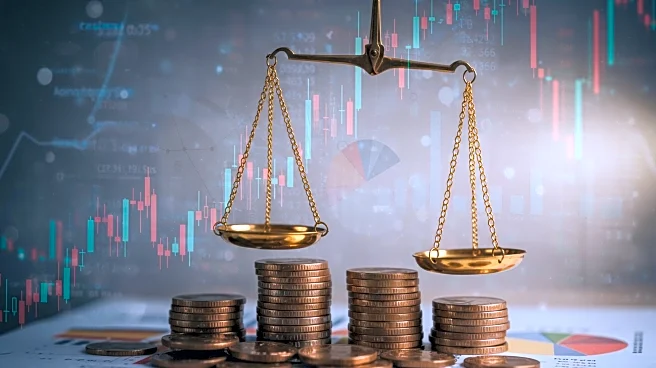What's Happening?
Syria is experiencing significant hurdles in its economic recovery due to a lack of liquidity, following years of dictatorship and corruption. The country's financial struggles are compounded by ongoing geopolitical tensions and internal challenges. NPR's Jane Arraf reports on the difficulties faced by Syria in stabilizing its economy, which has been severely impacted by prolonged conflict and mismanagement. The situation is further exacerbated by limited access to international financial systems and resources, hindering efforts to rebuild and develop sustainable economic practices.
Why It's Important?
Syria's economic recovery is crucial for regional stability and the well-being of its citizens. The liquidity crisis affects various sectors, including infrastructure, healthcare, and education, limiting the government's ability to provide essential services. The international community's response to Syria's economic plight could influence diplomatic relations and humanitarian aid strategies. The situation serves as a reminder of the long-term impacts of political instability and corruption on national economies, highlighting the need for comprehensive reform and international support.
What's Next?
Efforts to address Syria's liquidity issues may involve seeking international aid and investment, as well as implementing domestic reforms to improve financial management. The government may engage in negotiations with international bodies to secure funding and support for recovery initiatives. Observers will be watching for changes in policy and potential shifts in regional alliances as Syria navigates its economic challenges.










